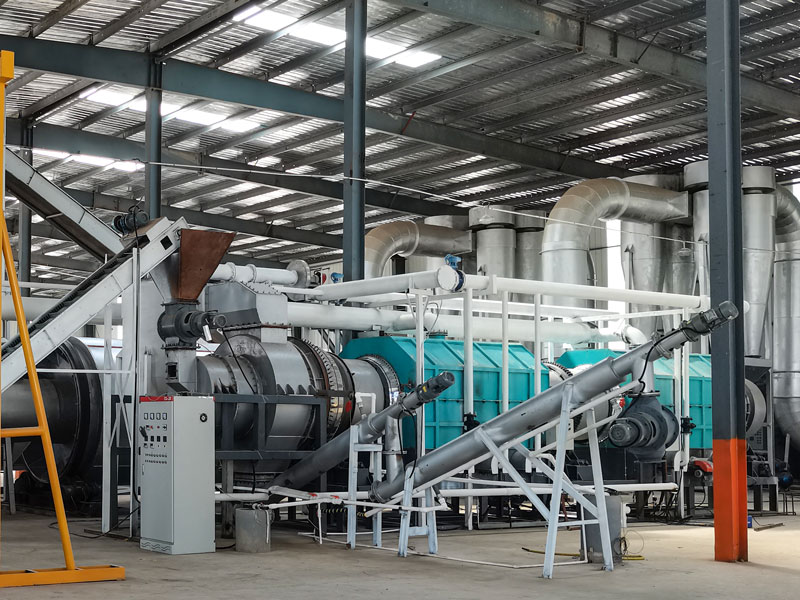Introduction: Charcoal making machines have emerged as a sustainable solution in the fight against climate change. By harnessing the power of biomass conversion, these machines provide numerous benefits while significantly reducing carbon emissions. Let’s delve into the advantages they offer and how they contribute to a greener future.
Maximizing Biomass Conversion Efficiency:
Charcoal making machines excel at efficiently converting various forms of biomass, such as agricultural residues, coconut shells, and bamboo, into high-quality charcoal. Through advanced pyrolysis technology, these charcoal maker machines ensure maximum utilization of organic waste, minimizing the release of greenhouse gases that would otherwise occur from natural decomposition or open burning.

Carbon Neutrality and Offset Potential
The use of biomass-derived charcoal generated by these machines offers a significant advantage in terms of carbon neutrality. As plants grow, they absorb carbon dioxide from the atmosphere through photosynthesis. When this biomass is converted into charcoal and used as a fuel source, it releases the same amount of carbon dioxide back into the atmosphere. This closed carbon cycle ensures that the overall carbon emissions remain neutral. Moreover, the production and use of biomass-based charcoal can help offset carbon emissions from other sectors, contributing to global carbon mitigation efforts.
Sustainable Alternative to Traditional Charcoal Production
Charcoal making machines provide a sustainable alternative to traditional charcoal production methods, which often involve cutting down trees and contributing to deforestation. By utilizing biomass waste as raw material, the wood charcoal machine reduces the demand for wood-based charcoal and acts as a catalyst for preserving forests and their invaluable ecosystem services. This shift promotes sustainable land management practices while curbing carbon emissions associated with deforestation activities.
Reduced Deforestation
Traditional charcoal production methods often rely on cutting down trees, leading to deforestation and biodiversity loss. In contrast, the machine encourages sustainable practices by utilizing agricultural residues and other wood waste that would otherwise be discarded or burned in open fields. By reducing the demand for timber, these machines play a vital role in preserving forests and their crucial ecosystem services.
Enhanced Air Quality
Charcoal produced by modern biomass pyrolysis machine exhibits excellent combustion properties, emitting fewer harmful pollutants compared to traditional charcoal. The efficient burning process minimizes the release of particulate matter, volatile organic compounds (VOCs), and other air pollutants, thereby improving local air quality and reducing respiratory health risks.
Circular Economy and Waste Reduction
Charcoal making machines contribute to the establishment of a circular economy by efficiently converting organic waste materials into valuable charcoal products. These machines can process a wide range of biomass feedstocks that would otherwise end up in landfills or be burned inefficiently, releasing harmful gases into the atmosphere. By transforming waste into a useful resource, they promote waste reduction, resource efficiency, and the sustainable utilization of biomass.
Conclusion
Charcoal making machines are instrumental in combating carbon footprint and promoting sustainable practices. Their ability to efficiently convert biomass waste into high-quality charcoal not only reduces deforestation but also contributes to renewable energy production. By harnessing the benefits of these machines, we can mitigate climate change, improve air quality, foster economic growth, and pave the way towards a greener and more sustainable future for all.